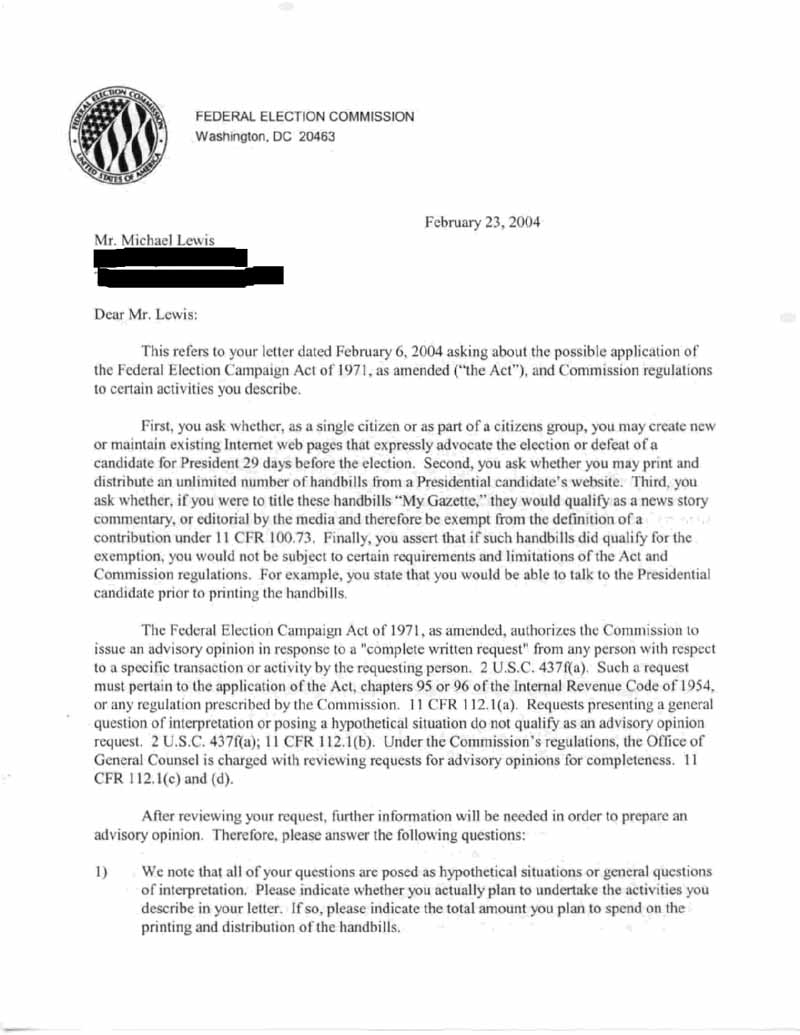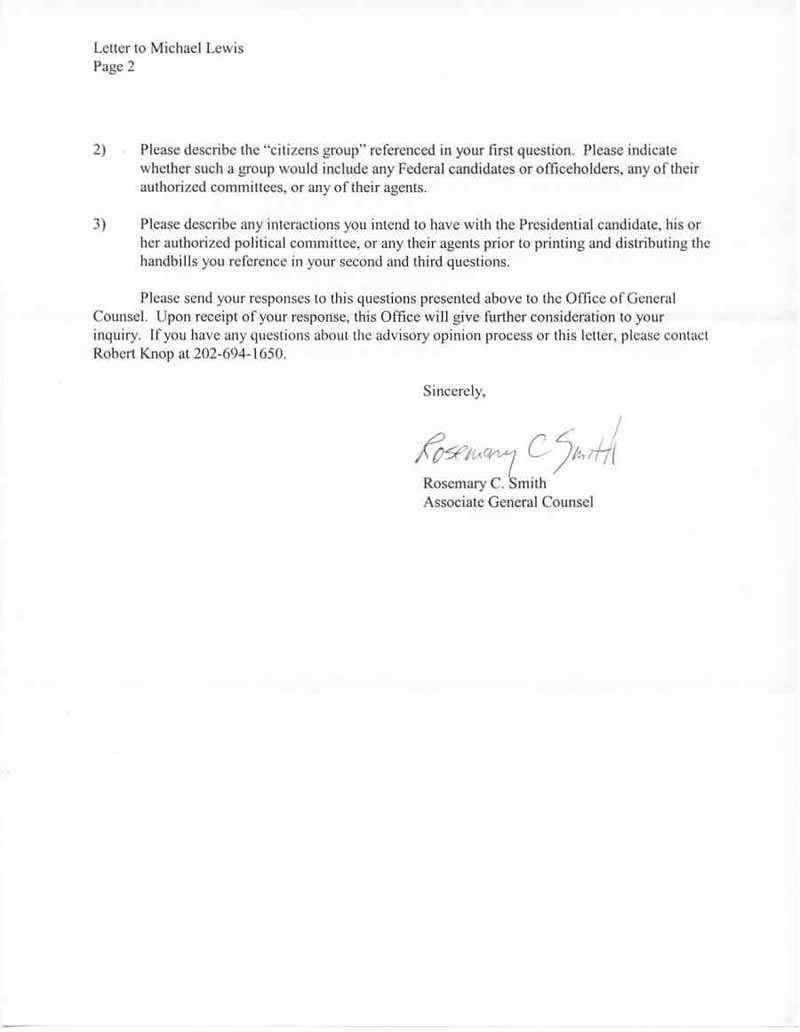Federal Election Commission
999 E Street, N.W.
Washington, D.C. 20463Re: Request for advisory opinions from the Federal Election Commission:
1. Can I, as an independent expenditure by a single citizen or as part of a citizens group, put up web pages, or continue an existing web page expressly advocating the election or defeat of a candidate for president 29 days before the election? If so, must I include a disclaimer stating who paid for the web pages and provide reports to the FEC?
2. Can I print handbills from a presidential candidate’s website on my home printer and distribute any number of them? Would printing and distributing constitute an in-kind donation? Could I use a personal copier to speed the process? Am I limited to $2000 in paper, ink and toner or may I print a quantity equivalent to my local newspapers circulation?
3. If I title my handbill “My Gazette” do I qualify for the newspaper exemption or would it still be an “independent expenditure”? Noah Webster’s dictionary defines a newspaper as apiece of paper on which is caused to be printed information or advertisement for the purpose of public distribution.
2 USC 431(9) (B) The term “expenditure” does not include - (i) any news story, commentary, or editorial distributed through the facilities of any broadcasting station, newspaper, magazine, or other periodical publication, unless such facilities are owned or controlled by any political party, political committee, or candidate;
Must I incorporate as a newspaper to enjoy freedom of the press?
Amendment I - Congress shall make no law respecting an establishment of religion, or prohibiting the free exercise thereof; or abridging the freedom of speech, or of the press; or the right of the people peaceably to assemble, and to petition the government for a redress of grievances.
Did the founding fathers write the 1st Amendment to guarantee citizens freedom of the press or corporate newspapers?
“the Supreme Court ruled no such thing in 1886. The ‘corporations are persons’ ruling was a fiction created by the court’s reporter. He simply wrote the words into the headnote of the decision. The words contradict what the court actually said. There is, in fact, in the US National Archives a note by the Supreme Court Chief Justice of the time explicitly informing the reporter that the court had not ruled on corporate personhood in the Santa Clara case.” -- Thom Hartmann, Dinosaur War, The Ecologist, December/January 2002 Issue
Kentucky Constitution, Section 8
Freedom of speech and of the press.
Printing presses shall be free to every person who undertakes to examine the proceedings of the General Assembly or any branch of government, and no law shall ever be made to restrain the right thereof. Every person may freely and fully speak, write and print on any subject, being responsible for the abuse of that liberty. Text as Ratified on: August 3, 1891, and revised September 28,1891. History Not yet amended.
The following are the FEC regulations that the Newspaper Exemption would free me of:· I would not have to report expenditures over $250 to the FEC.
· The Supreme Court has upheld the right of anonymous political speech: I would not have to put a disclaimer with my name and address at the bottom of the page? King George wanted every American press to have a unique number embossed on its platen so he could trace every printed page back to its physical source. The American people said no!
· My freedom of assembly would be restored: talking to the candidate before printing would be exercising due diligence as a reporter and not a limit on how much I could print or worse yet the felony of coordination.
Thank you,
Michael Lewis
===================================================================================

